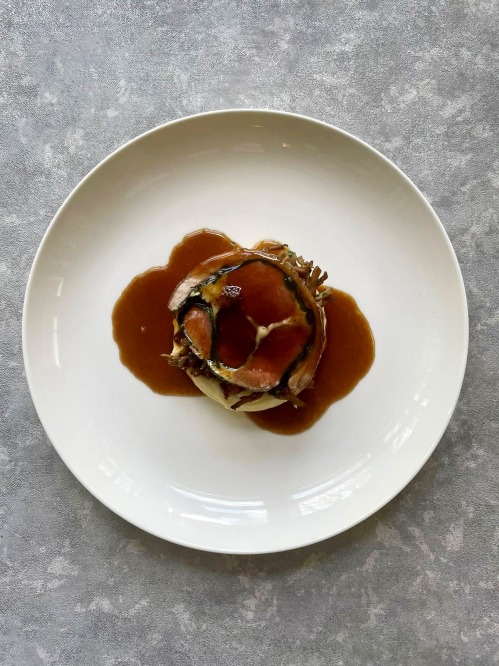How to Be a First-Rate Version of Yourself

Living North’s columnist Dr Maurice Duffy on why so many people waste a perfectly good life trying to be someone else
Who am I? This question is so often asked by so many, suggesting that we assume there is a simple, plausible answer. Almost as if who we are, our identity, is one fixed, static concept. It is not!
The first question to ask yourself is not ‘who am I?’, as quite frankly that is irrelevant. What you ought to ask yourself is, ‘who do I want to be?’.
Maybe our actual focus should be on creating a more improved version of ourselves, someone better. The emphasis should not be on discovering who you are, but rather on facilitating the emergence of what you would like to experience in your life.
The irony is that the more you seek to identify who you are, the more fragile and insecure you are likely to feel about yourself.
People often want to define themselves, to have an ideal image to portray to the world, and we can spend our lives on self-analysis. We seek to fully understand what makes us who we are and how our minds work, only to discover that our mind has a will of its own. It can trick us into thinking that our thoughts are facts; that we have an indisputable reason to be sad, to be frustrated, to be anxious, and to be angry.
It happens, often, to us all. Our minds think one thing but we feel another, and this can result in a battle. It can lead us to berating ourselves, focusing on everything that is ‘wrong’ with us, allowing our moods to be affected by things that we often cannot control, or perhaps change.
Avoiding discomfort for the sake of safety, feeling shame to prevent repeat mistakes, and experiencing uncomfortable thoughts resulting in uncomfortable feelings are some of the brain’s ways of protecting us.
Our brain is constantly replaying our history, telling us how good or bad we have been, not allowing us to move on from our past errors; perhaps in a primitive attempt to prevent those errors reoccurring, but in effect it is simply allowing our past to dictate our future.
But I truly believe we can change this mindset.
In my opinion, one of the greatest revelations of all time is that a person can alter their future by merely changing their attitude. How we perceive life is entirely our choice. We are not powerless beings. Quite the opposite, you can decide right now, you can make a choice, a decision.
Change your attitude today and begin to alter your future, for it is not yet written, it is like an unchartered map. By adopting the right mindset and attitude you can map out the future you desire, thus becoming the person you can admire.
Our identity would be better seen as an ongoing growth process, rather than a static snapshot, allowing our inner self to evolve and progress. Imagine how different our lives could be if, rather than focusing all our efforts on ‘who am I?’, we instead put our energy into contemplating who we would like to become.
The reality is we are constantly changing, not just physically but mentally, emotionally, and in our personal identity. In truth, we are not merely one person, we are not one-dimensional beings, but rather many people rolled into one. We exist as a broad set of potentials, rather than as a narrow set of traits. The particular trait we manifest at any one point in time depends largely on the circumstances in which we find ourselves.
I have two questions: Why do so many people waste a perfectly good life trying to be someone else? And why do so many people want to compromise something that is beautiful to create something that is fake?
I say this frequently, it’s simple but true: ‘I challenge you to be a first-rate version of yourself and not a second-rate version of someone else.’ It’s not enough to merely create an identity, but more to become the right identity, one that feels natural to you!
You must step into the possibility of change and growth rather than remaining mired in fear. Take the leap towards who you want to be, don’t be held back by who you have been, but re-craft yourself along the way. Take what you may have learned and add to it repeatedly!
Of course it is useful, even advantageous, to be self-aware or to have an insight into your thoughts, feelings, hopes and fears. However, it is astute to understand that your sense of self is malleable, that it is better to be like a willow tree than a sturdy oak. The willow is flexible and survives the storm as it bends with the wind, whereas the more rigid oak is more likely to crack and fall. Be more willow than oak.
What we think we become. What we feel we attract. What we imagine we create.
Should you ever find yourself the victim of other people’s bitterness, small mindedness, insecurities, or judgement,
remember things could be worse… you could be them.
Every day brings with it a chance to be different. A chance for change. A chance for betterment. Your beliefs do not make you a better person, they start the journey and guide you. Your behaviour and attitude complete the journey.
When you cannot control what is happening around you, challenge yourself to control the way you respond instead. That is where your power lies.
You either take what has been dealt to you and, like a willow tree, bend but never break, or, like the oak, stubbornly refuse to move and are blown down.
The choice does not belong to fate. It belongs to you. If you can stop thinking of who you are and start believing in who you can become, then you will see life open up before you. You will realise that you are an ongoing project and that your identity is not your prison – rather your freedom.
Life is made up of moments! Do not wait for them to manifest – create them!
Dr Maurice Duffy is Visiting Professor at Sunderland, consulting coach to the NHS, the Australian cricket team, Durham Cricket Club, international golfers, rugby and many sports people, and also coaches many senior FTSE 100 business leaders and politicians around the world. Find out more at mauriceduffy.com or follow him on twitter @thebeaksquawks







